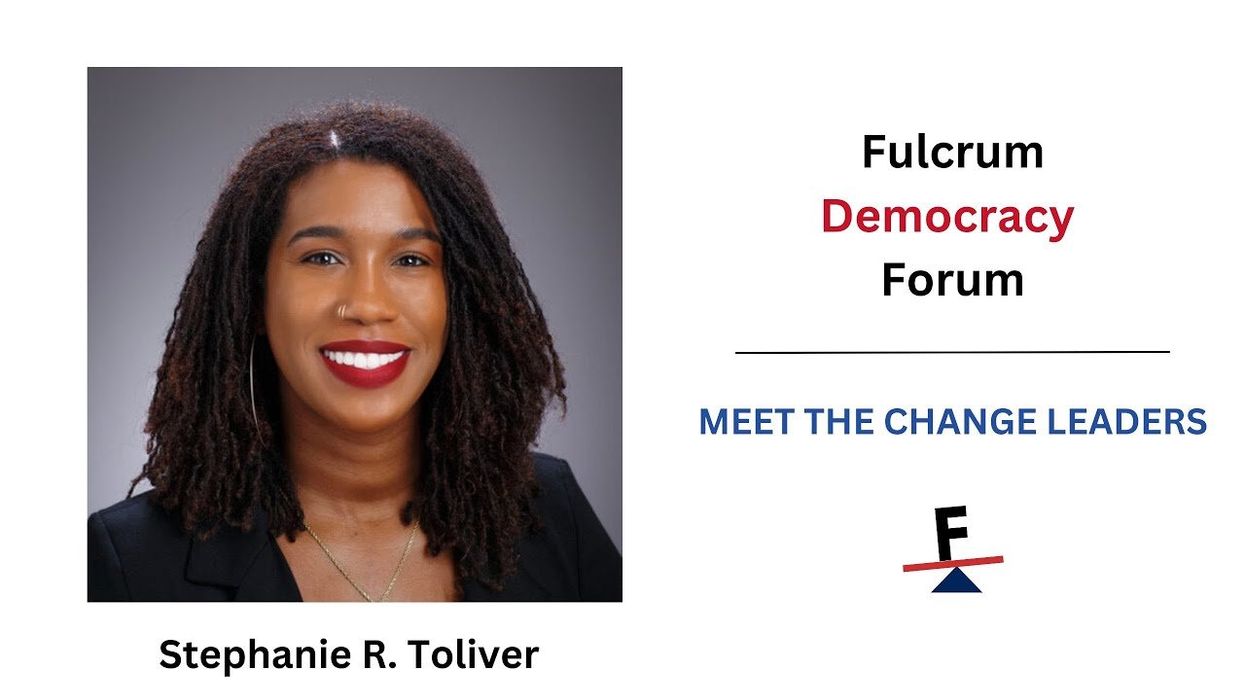Stephanie R. Toliver is an Assistant Professor of Curriculum and Instruction focusing on English Education and Adolescent/Secondary Literacy.
In her research, Toliver employs creativity and imagination to confront systemic inequities and promote more equitable education environments.
I spoke with Stephanie on a recent episode of Fulcrum Democracy Forum (FDF). The program engages citizens in evolving government to better meet all people's needs. Consistent with the Fulcrum's mission, FDF strives to share many perspectives to widen our readers' viewpoints.
She shared that her work focuses on three main areas, including investigating Black storytelling as a social critique and transformation mechanism. "My aim in that is to really underscore the role of narrative," Stephanie said. "Showcasing how storytelling as this culturally and critically informed literacy practices can help to expose injustices, but also inspire new paradigms for equity and liberation."
Stephanie wrote a column published on the Fulcrum titled "N o Going Backwards: Cannot Take Down DOE." She wrote about the White House declaration to shut down the U.S. Department of Education, coupled with the executive order banning diversity initiatives, which threaten to undo the progress so many Americans have fought to achieve in advancing educational equity. "There's been a history of stories that argue for a more efficient government. Some folks may see this efficiency as a streamlining, getting rid of the bloat, of unnecessary things. But, so many people consider those who are economically disadvantaged, elderly, disabled, people of color as those unnecessary things," Stephanie said.
Stephanie is from New Castle, Pennsylvania. She told me about how her upbringing influenced and inspired the work she leads today. "Everybody I knew was Black, everybody in my school bus was Black, there were a lot of Black students in that school, but only two of us in the honors classes." When Stephanie was in 11th grade, she moved with her family to Sanford, Florida. She said that was the first time a guidance counselor or teacher brought up college to her. "I had a 4.0 GPA, I had good attendance, I had community service hours. I had done all the things, and no one had ever brought up college. Why not?" she asked as she compared her time as a student in New Castle. "Who might I have been if I was encouraged earlier?" she wonders.
SUGGESTION:
Religious diversity for the common good
- YouTubewww.youtube.com
Marcela Betancur: Improving policymakers' understanding of the community's needs
- YouTubewww.youtube.com
Anusha Harid-Paoletti: "Diversity is intertwined with success"
- YouTubewww.youtube.com
If you have a suggestion for a change leader I should profile in an upcoming episode of the Fulcrum Democracy Forum, please email me at Hugo@thefulcrum.us.
I am the executive editor of the Fulcrum and a board member of the Bridge Alliance Education Fund, the parent organization of The Fulcrum. I am also the publisher of the Latino News Network and an accredited solutions journalism trainer with the Solutions Journalism Network.




















Trump & Hegseth gave Mark Kelly a huge 2028 gift